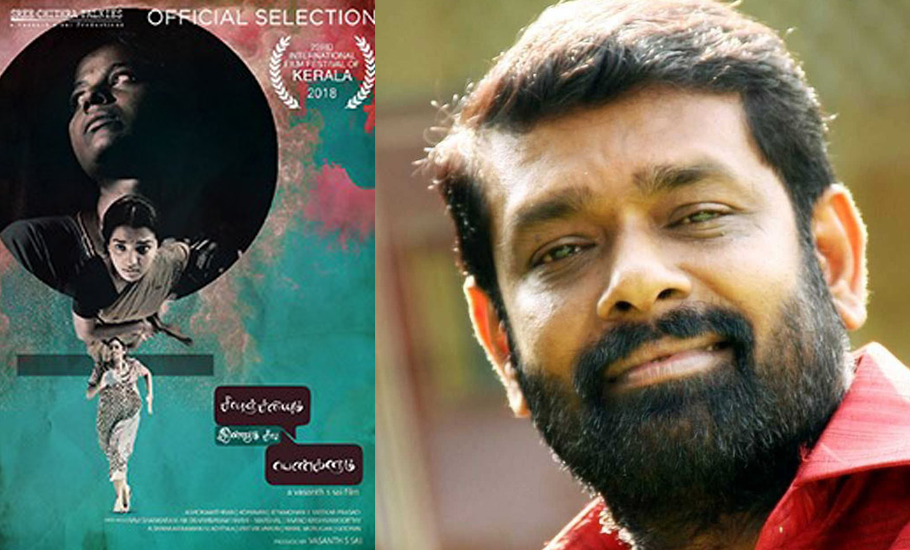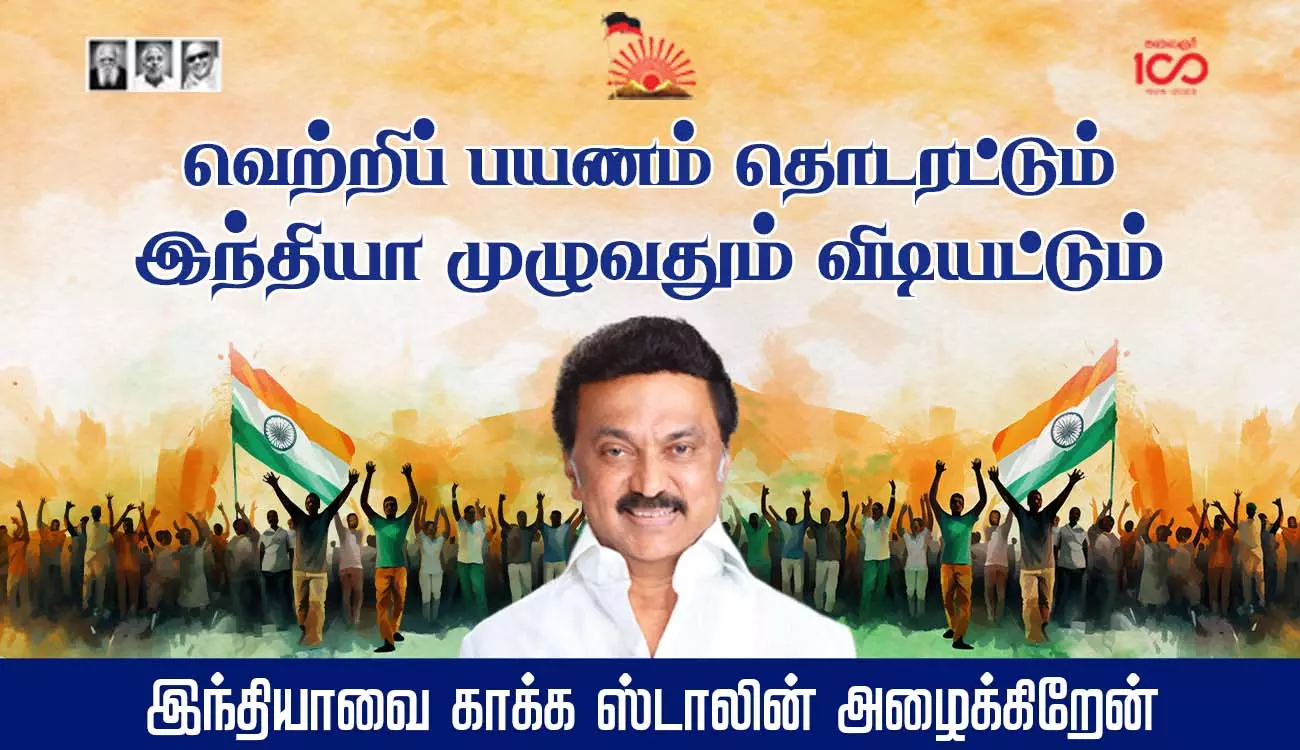
Vasanth Sai: Journalist, writer, and National Award winning filmmaker
In an exclusive interview with The Federal, filmmaker Vasanth Sai shares his passion for adapting literary works for the screen, taking long breaks between films, and his penchant for parallel cinema

In the 1990s, the Tamil film industry was undergoing a major transformation. The effects of the country’s neo-economic policies targeting liberalisation, privatisation and globalisation were gradually seeping into Tamil films as well. The films were veering away from basing their stories in rural settings and moving into urban worlds.
Tamil cinema was focussed on mass entertainment, with big budgets and grandeur with little regard for the script. In this milieu, filmmaker Vasanth S Sai’s films stood apart. His films had and continue to have art house understanding and commercial elements in a perfect ratio. He had a knack of treading on both parallel and commercial cinema, a quality he had imbibed from his mentor K Balachander, a veteran filmmaker.

A voracious reader of Tamil literature combined with his experiences as a journalist, Sai approaches the film medium with sensibility. On July 22, Sivaranjaniyum Innum Sila Pengalum, which he produced, bagged National Awards in the best Tamil film, best supporting actress and best editing categories.
The film was based on three short stories – Vimochanam, Devaki Chithiyin Diary and Ottam, written by Ashokamitran, Jeyamohan and Aadhavan, respectively. It was released on Sony Liv.
Interestingly, it was Vasanth who introduced Suriya, who also won the National Award this year for best actor, in his 1997 film Nerukku Ner. In an interview to a Tamil magazine, Suriya had confessed that Vasanth used to rebuke him on the sets of Nerukku Ner, and this had made him realise that he must work hard to shine as an actor.
Some 23 years later, after the roaring success of Soorarai Pottru, Vasanth wrote a letter to Suriya stating that after his debut film, the superstar’s acting prowess has improved a lot and that is reflected in the biopic of Captain GR Gopinath.
When asked how he sees the evolution of Suriya as an actor, Vasanth was stumped for words. He simply said, “My wishes to him”. In an exclusive interview with The Federal, Vasanth shared his passion in adapting literary works for the screen, taking a long break between each of his films, and various other topics. Edited excerpts:
This is your third National Award. How do you feel about that?
I feel humbled. A film speaking about women’s issues getting a National Award gives me a lot of satisfaction. I am dedicating this award to four men – they are my guru K Balachander, writers Ashokamitran, Aadhavan and Jeyamohan.
A simple reason why I chose the short story format in my film is that these stories do something in me. It is more than just liking them. I did not read them with the intention of making a movie. Rather, I read these stories some 25 years back, many times at different stages of my life. They were written in the 1970s, ’80s and ’90s. When I wanted to do a women-centric film, these stories came to my mind. So, after receiving the rights, I adapted them into a film. This is one film which I made straight from my heart.
Also read: National Film Awards: Suriya’s Tamil film Soorarai Pottru wins big
What inspires you to continue to adapt literary works?
Literature and cinema make people realise themselves. As a reader, when I read a short story or novel and if I like them, I get an urge to adapt them into films. It is these kinds of films that bring out the best in me. After watching Sivaranjaniyum…, director Mani Ratnam sent me a congratulatory note stating: ‘Literature Meets Cinema!’. I like to bring literary works closer to cinema.
But you were a writer and journalist yourself…
Yes. I was a staff reporter for the Indian Express for three years during my college days. Most of the time, I spent my time on the field rather than in the college classroom. I have written more than 500 articles, 100 short stories and interviewed stalwarts like former finance minister C Subramaniyam.
Did the journalistic experience turn you into a sensible filmmaker?
Perhaps. While adapting literary works, I am careful not to disturb the soul of the story despite my creative freedom. If I am being termed as a ‘sensible filmmaker’ at least in that sense, I am glad.
After Nee Pathi Naan Pathi, there was a four-year gap. Then you came up with a trendsetting film Aasai, after which you went into hibernation. Your next was Nerukku Ner after a gap of two years. Why do you take these long gaps?
I deliberately choose to do this. I can do films even on a daily or a monthly basis. I made the documentary Sanath in just two days. But it is difficult to get producers for feature films. As you know, I am the producer of Sivarajaniyum Innum Sila Pengalum. I completed the film in 2018 but it was only released in 2021. Though the pandemic delayed the film, as a producer I have my own challenges. So, taking a long break between one film and another is unavoidable. However, it doesn’t mean I am idle during my break. I do short films, ad films and documentaries.
You can still do a complete mass entertainer. But you have deliberately chosen the middle path…
I don’t want to make mass entertainers. Or, I can say, I don’t know how to do a full-fledged commercial film. Even if I know that I can do a successful commercial film, I don’t want to do it. Working in parallel cinema space has become my signature. I like what I do and I continue to do it.
At a time when filmmakers are unsure when their films will release, it is meaningless to talk about my future projects. However, quite simply, I like to continue to travel on the literary road. I have many stories that I read and loved and I want to convert them into films. A literary work can get sufficient attention only when the writers and their works are properly respected and their values are realised. When more filmmakers come forward to adapt literary works, Tamil cinema will reach even more heights.





